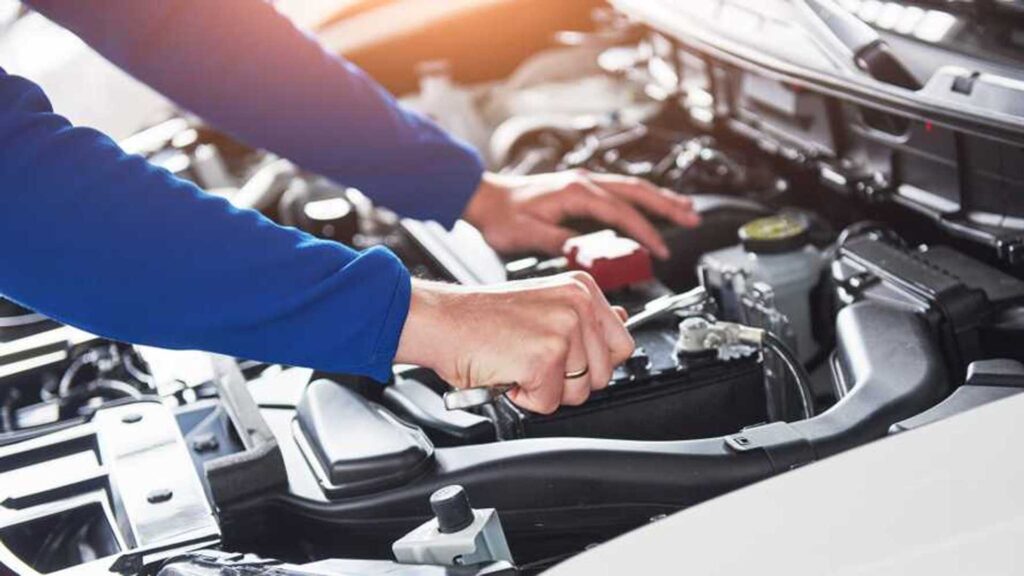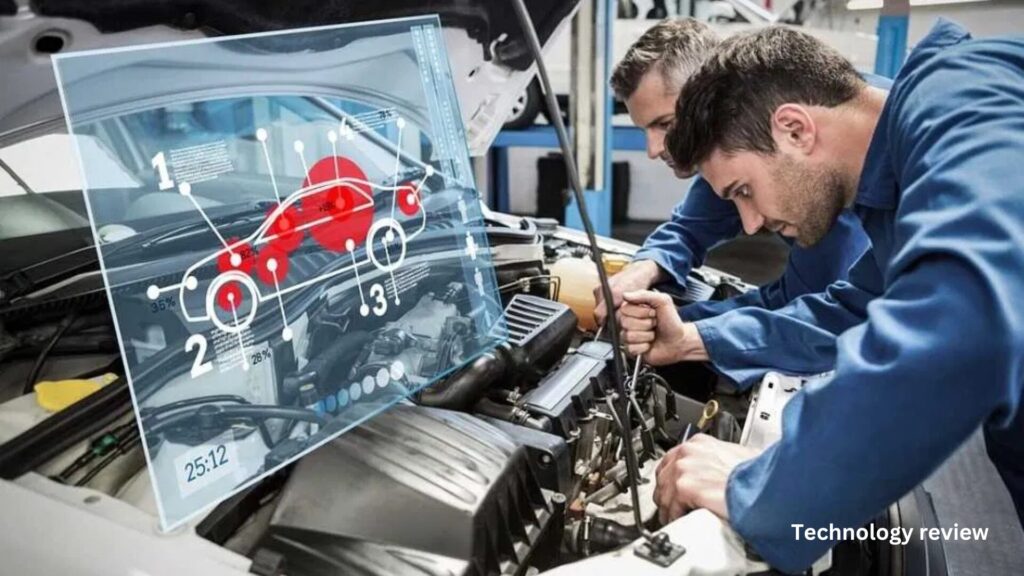Electric Vehicle Maintenance Tips for Optimal Performance As an electric vehicle owner, you’ve made a smart choice for both your wallet and the environment. But to keep your EV running smoothly and efficiently, proper maintenance is key. While electric cars generally require less upkeep than their gas-powered counterparts, they still need regular care to perform optimally. By following a few simple maintenance tips, you can extend your vehicle’s range, prolong battery life, and avoid costly repairs down the road. In this article, you’ll discover essential electric vehicle maintenance practices that will help you get the most out of your eco-friendly ride for years to come.
Tips for Maintaining Your Electric Vehicle’s Battery
Optimize Charging Habits
To maximize your electric vehicle’s battery life, adopt smart charging practices. Avoid frequent fast charging, as it can degrade the battery over time. Instead, opt for regular slow charging whenever possible. Keep your battery charge level between 20% and 80% for daily use, reserving full charges for long trips. These electric vehicle maintenance tips will help extend your battery’s lifespan and maintain its capacity.
Temperature Management
Extreme temperatures can significantly impact battery performance. Park your EV in shaded or covered areas during hot weather to prevent overheating. In cold climates, utilize pre-conditioning features to warm the battery before driving. If available, use a garage or carport to shield your vehicle from harsh weather conditions. Proper temperature management is crucial for optimal battery health and longevity.
Regular Software Updates
Stay current with your EV’s software updates. Manufacturers often release improvements that can enhance battery efficiency and overall performance. These updates may include optimizations for charging algorithms, battery management systems, and energy consumption. Regularly checking for and installing updates is an essential part of electric vehicle maintenance.
Monitor Battery Health
Keep a close eye on your battery’s health using the vehicle’s built-in diagnostic tools or smartphone apps. Watch for any unusual drops in range or charging capacity. If you notice significant changes, consult with your dealership or a certified EV technician. Early detection of potential issues can prevent more serious problems and ensure your electric vehicle maintains optimal performance.
Regular Tire Maintenance for EVs
Proper tire maintenance is a crucial aspect of electric vehicle maintenance tips that can significantly impact your EV’s performance and efficiency. While electric vehicles generally require less maintenance than their gasoline counterparts, tires remain a critical component that demands regular attention.
Importance of Tire Pressure
Maintaining optimal tire pressure is essential for EVs. Underinflated tires can increase rolling resistance, which directly affects your vehicle’s range and energy consumption. Regularly check your tire pressure, ideally once a month, and adjust it according to the manufacturer’s recommendations. Remember that tire pressure can fluctuate with temperature changes, so be extra vigilant during seasonal transitions.
Rotation and Alignment
Rotate your tires regularly to ensure even wear and extend their lifespan. Most EV manufacturers recommend rotation every 5,000 to 8,000 miles. Additionally, proper wheel alignment is crucial for maximizing your EV’s efficiency and preventing premature tire wear. Schedule alignment checks at least once a year or if you notice any pulling or vibration while driving.
Tread Depth Monitoring
Keep a close eye on your tire tread depth. Adequate tread is vital for maintaining traction, especially in wet conditions. Use a tread depth gauge or the simple penny test to check your tires regularly. When the tread depth reaches 4/32 of an inch, it’s time to start planning for replacement. By following these electric vehicle maintenance tips for tires, you’ll ensure optimal performance and safety for your EV.

Cleaning and Protecting Your EV’s Interior
Regular Cleaning Routine
Maintaining a clean interior is a crucial aspect of electric vehicle maintenance. Start by vacuuming the floors, seats, and trunk area regularly to remove dirt and debris. Use a microfiber cloth to wipe down surfaces, paying special attention to high-touch areas like the steering wheel, gear shifter, and dashboard. For stubborn stains, use a gentle, eco-friendly cleaner specifically designed for automotive interiors.
Protecting Surfaces
To preserve your EV’s interior, apply a UV-protective coating to plastic and vinyl surfaces. This helps prevent fading and cracking caused by sun exposure. For leather seats, use a leather conditioner to keep them supple and prevent drying out. Don’t forget to clean and condition the steering wheel regularly, as it’s one of the most frequently touched surfaces in your vehicle.
Maintaining Electronics
Electric vehicle maintenance tips extend to the car’s electronic components as well. Gently clean touchscreens and displays using a microfiber cloth slightly dampened with an electronics-safe cleaner. Avoid using excessive moisture, as it can damage sensitive components. Regularly check and clean air vents to ensure proper airflow and prevent dust accumulation, which can affect the efficiency of your EV’s climate control system. Electric Vehicle Maintenance Tips for Optimal Performance.
Checking Fluids and Filters
While electric vehicles (EVs) have fewer moving parts than traditional cars, they still require regular maintenance to ensure optimal performance. One crucial aspect of electric vehicle maintenance tips involves checking fluids and filters. Although EVs don’t use engine oil, they do rely on other essential fluids and filtration systems.
Coolant System
The coolant system in electric vehicles plays a vital role in regulating the temperature of the battery pack and other electrical components. Regularly inspect the coolant levels and top up if necessary, using the manufacturer-recommended coolant. It’s also important to check for any leaks or signs of contamination in the coolant system.
Brake Fluid
EVs use regenerative braking, which reduces wear on brake pads. However, brake fluid still needs to be checked and replaced periodically. Low brake fluid levels can compromise your vehicle’s stopping power, so maintain proper levels and replace the fluid according to the manufacturer’s schedule.
Cabin Air Filter
While not directly related to the electric drivetrain, the cabin air filter is crucial for maintaining air quality inside your EV. Replace it regularly to ensure clean air circulation and prevent potential allergens or pollutants from entering the cabin.
By incorporating these electric vehicle maintenance tips into your routine, you’ll help ensure your EV continues to perform at its best, providing a smooth and efficient driving experience for years to come.
When to Schedule Service for Your Electric Vehicle
Maintaining your electric vehicle is crucial for optimal performance and longevity. Unlike traditional combustion engines, EVs require less frequent maintenance, but knowing when to schedule service is still essential. Here are some key electric vehicle maintenance tips to keep in mind:
Regular Check-ups
Schedule annual inspections with a certified EV technician to assess your vehicle’s overall health. These check-ups should include:
- Battery health evaluation
- Brake system inspection
- Tire rotation and alignment check
- Software updates
Battery Maintenance
Your EV’s battery is its heart, so pay close attention to its condition. Schedule a battery health check every 2-3 years or if you notice a significant decrease in range. Many manufacturers offer battery warranties, so consult your owner’s manual for specific guidelines.
Brake System Service
Electric vehicles use regenerative braking, which reduces wear on brake pads. However, you should still have your brakes inspected annually or every 12,000-15,000 miles, whichever comes first.
Tire Care
Rotate your tires every 6,000-8,000 miles to ensure even wear. Schedule an alignment check if you notice uneven tire wear or steering wheel vibration.
By following these electric vehicle maintenance tips and scheduling regular service, you’ll ensure your EV continues to perform at its best for years to come.
Conclusion
As you embrace electric vehicle ownership, remember that proper maintenance is key to maximizing performance and longevity. By following these essential tips-from regular battery care to tire rotations and software updates-you’ll ensure your EV continues to run smoothly for years to come. While electric vehicles require less maintenance overall compared to traditional combustion engines, staying proactive with these simple tasks will help you avoid potential issues and keep your car in top condition. As EV technology continues to evolve, stay informed about best practices and consult your vehicle’s manual for model-specific guidance. With proper care, your electric vehicle will provide you with reliable, efficient, and environmentally-friendly transportation for many miles ahead.



